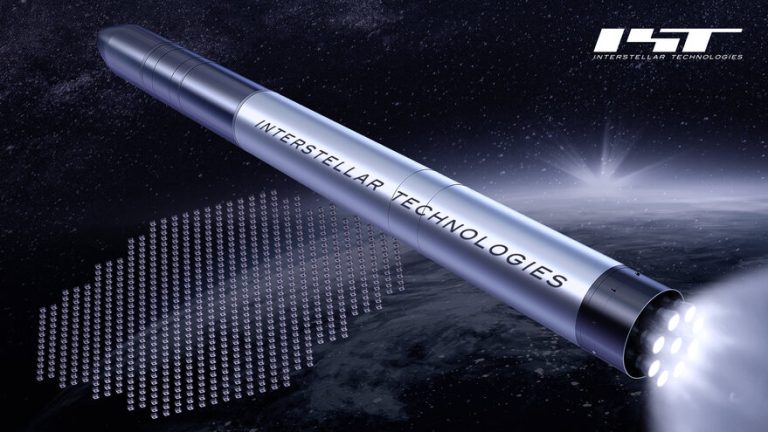HELSINKI — Interstellar Technologies raised 8.9 billion yen ($61.8 million) to boost development of its Zero rocket and research and development of satellite systems.
Launch and space infrastructure company Interstellar secured 6.5 billion yen ($45.1 million) equity financing by Sumitomo Mitsui Banking Corporation (SMBC), Space Frontiers Fund II (operated by SPARX Asset Management), Japanet Holdings and existing investors. An additional 2.4 billion JPY (16.7 million USD) was secured through debt financing, Interstellar announced July 10.
Interstellar added that it also entered a business alliance agreement with SMBC to help build and strengthen supply chains within Japan’s growing space industry.
“Backed by Japan’s Ministry of Internal Affairs and Communications and JAXA’s Space Strategy Fund, the company is building a vertically integrated model, similar to SpaceX’s approach with Starlink,” Interstellar said in a statement.
“We recognize that the rocket and satellite communication services being developed by Interstellar are vital components for Japan’s future space infrastructure. These efforts are aligned with Japan’s Basic Plan on Space Policy and will significantly contribute to the essential positioning and communication infrastructure for next-generation mobility society, such as autonomous driving and smart logistics,” Tadashi Kito, Head of Space Investment Team, SPARX Asset Management, said in a statement.
The company previously raised $21 million in series E funding in August 2024. In January it announced a $44 million investment from Woven by Toyota.
The fresh funding follows a series of recent announcements from Interstellar. The company announced July 8 a Strategic Partnership Agreement (SPA) with Exolaunch, focused on enhancing rideshare launch capabilities for small satellites. The same day it announced an SPA with ATMOS Space Cargo to jointly explore integrated space logistics architectures that combine launch services and orbital return capabilities. Exolaunch is a Berlin-based company specializing in rideshare mission integration, while ATMOS Space Cargo is working on orbital return systems.
Last month, Interstellar signed a foundational agreement with Taiki Town, owner of Hokkaido Spaceport, designating it as the priority launch operator for the new Launch Complex 1.
The company is working towards the first flight of its Zero launcher. The 32-meter-long, 2.3-meter-diameter Zero rocket uses liquid biomethane fuel and liquid oxygen oxidizer. Its first stage is powered by nine Cosmos gas generator engines, with a single second stage engine.
Zero is designed to eventually be capable of lifting 800 kilograms of payload to low Earth orbit. Alternatively it will be able to carry 250 kg to sun-synchronous orbit.
The company previously stated it was targeting 2025 for a test flight of the Zero rocket. The company did not immediately respond to a request for comment on its testing activities and flight schedule.
Interstellar’s Momo suborbital rocket has launched seven times, suffering four failures. The last two flights, in July 2021, were successful. The company also plans a much larger Deca launcher for the 2030s.
Interstellar is taking part in a national drive to boost domestic launch capacity. Japan is targeting a launch cadence of approximately 30 institutional rockets and private rockets per year by the early 2030s.
This drive is part of a wider multibillion-dollar space strategic fund to develop the country’s innovation, autonomy and international competitiveness. Space-related objectives include maintaining independence in space capabilities, strengthening technological superiority, and increasing supply chain autonomy. It is also part of wider economic measures to overcome deflation.

